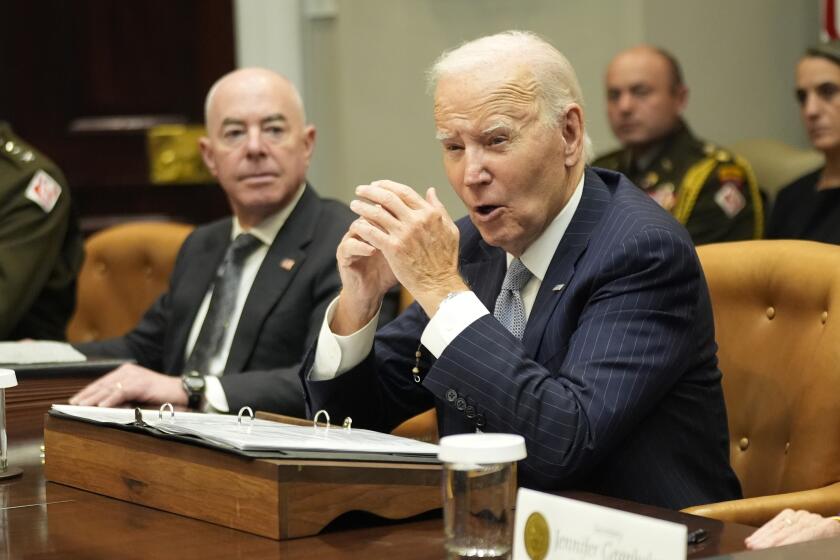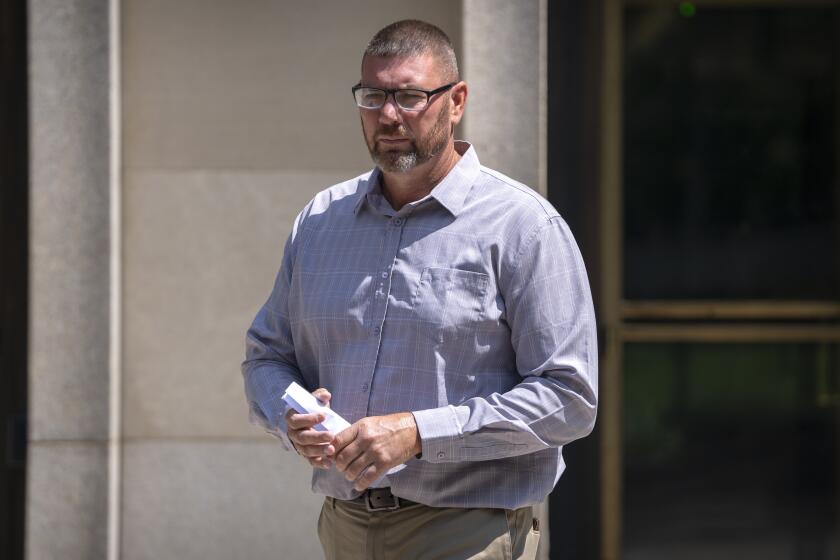Those Were the Days When Foreigners ‘Need Never Worry About Making Friends’ : Bleeding Beirut Was Once a Cosmopolitan Haven of Tolerance and Joy
An old guidebook says: “One thing a foreigner in Beirut need never worry about is making friends.” That was long ago, before a civil war devastated the city and nation, before the hostage-taking. Here is a report on what it was like, by an Associated Press correspondent who lived in Beirut in those days.
I remember when Beirut was the playground of the Middle East, a vibrant crossroad between the Orient and the West. The bright Mediterranean sun glinted from its high-rise buildings and its vaults were full of oil money.
Beirut was a stimulating intellectual center then, and a vital contact point for businessmen.
Now, it is a shambles strewn with garbage, a city brought low by 14 years of vicious civil war.
Those of us who lived there remember Beirut before the war as a place where 100,000 foreigners mingled with Middle Eastern princes, high-rollers, emigres, adventurers and 17 Christian and Muslim sects.
A veneer of Western culture was superimposed on the fragile sectarian structure created by the French when they granted Lebanon independence in 1943. A dormant volcano of hatreds seethed beneath the exuberance and sophistication.
Pine-Covered Mountains
Luxury hotels, apartments and office blocks gleamed between the blue Mediterranean and pine-covered mountains.
Non-Lebanese Arabs, constrained at home by puritanical Muslim rules or dictators, could kick up their heels with liquor, women or $300 roulette chips and voice their political opinions freely in the Arab world’s only working democracy.
Westerners came to tap the oil money that poured into Beirut, buying into several dozen Lebanese banks or opening their own offices.
Citibank of New York decorated a full floor of its office annex at the Holiday Inn with imported carpets and furniture.
A few months later, we watched from the Associated Press office nearby as it was looted and destroyed by rival militias battling for strategic high-rise buildings along what became the line dividing Christian and Muslim sectors of the city.
Cosmopolitan Society
Westerners found Beirut intriguing for its combination of modern amenities with the Oriental flavor of the old gold market, its cosmopolitan society, the Middle Eastern food at such restaurants such as Ajami’s.
I still have a dusty, English-language guidebook, the last published before the war. “Everywhere you will feel the warm eastern hospitality,” it says. “One thing a foreigner in Beirut need never worry about is making friends.”
Fourteen years later, scores of foreigners have been kidnaped, most of them by virulently anti-Western Muslim groups. Sixteen still are held, including Terry Anderson, an AP colleague.
More than 150,000 Lebanese, most of them civilians, have been killed in the war and 1 million have been displaced.
Burned-out hulks of the St. Georges, Palm Beach, Phoenicia and Holiday Inn hotels cluster in what once was Beirut’s tourist center and now is a wasteland inhabited only by snipers.
Water Skiing, Speed Boats
I recall sitting in the St. Georges restaurant in the good old days, watching water skiers skim behind needle-nosed Italian speedboats.
There also was the less-costly, though fastidious, Myrtoum House restaurant and pension run by Hans Matschek, an Austrian expatriate. Regulars said it was the only place in Lebanon’s sunny climate to risk eating steak tartare.
An attraction at night was the great Casino de Liban, north of the city in what is now Christian territory, where one could gamble or watch two imported floor shows.
Those with the right connections might attend functions dominated by the doyenne of high society, Isabelle Soursock. She was from an old-money Lebanese Christian family and became Lady Isabelle when she married Sir Desmond Hamilton.
A vivid memory is of a visit to the home of Henri Pharaon, a bachelor shipping millionaire who lived among priceless Islamic art treasures and pictures of horses he raced against those of Saudi princes.
Race Track Now a Ruin
The race track on the city’s dividing line is a ruin now, a nightmare scene of bullet-splintered trees and shell holes.
An unusual establishment, even for Beirut, was the Surprise. It was the size of a packing crate and had a bartender, four stools, one hefty prostitute and a remarkable number of customers bidding for her favors.
The American University of Beirut and large numbers of Arab intellectuals who fled persecution in their own countries gave the city a more serious side.
“The Arab emigres contributed to the city more than the Lebanese socialites,” said Charles Snow, an oil economist who spent many years in Beirut and moved to Cyprus in 1976.
The American University and medical school once had 5,000 students and produced a great share of the professional, academic and political leaders in the Arab world.
Graduate Become Hijacker
Among the graduates was Dr. George Habash, whose Popular Front for the Liberation of Palestine carried out airline hijackings in the 1970s.
A 5-month-old artillery war between Syrian and Christian soldiers has forced the university to close temporarily. Several of its officials have been kidnaped.
Adjoining the park-like university campus was the American Community School, where children of expatriate families studied and played Little League baseball. Some tried the pinball machines at Anwar’s, where many British and American boys, including my two sons, learned Arabic insults from local youngsters.
Beirutis could ski at Faraya on Mt. Lebanon, play tennis or squash and race in motor rallies.
An American journalist who played at the Golf Club of Lebanon, next to the now-closed airport, as late as 1983 wrote that the safest places on the course were the sand traps.
The luxurious Delamiyeh Country Club, with a gorgeous sea view from a ridge south of the city, was abandoned after Palestinian guerrillas took it over early in the war.
Will the old Beirut ever return?
No one knows, but I remember Khaled Saab, owner of Summerland, a functioning hotel built during the war. A television reporter asked why he made the investment, and Saab replied:
“Did you, as a child, ever kick over an anthill? Did you see how quickly the ants rebuilt? That’s Lebanon.”
More to Read
Sign up for Essential California
The most important California stories and recommendations in your inbox every morning.
You may occasionally receive promotional content from the Los Angeles Times.










